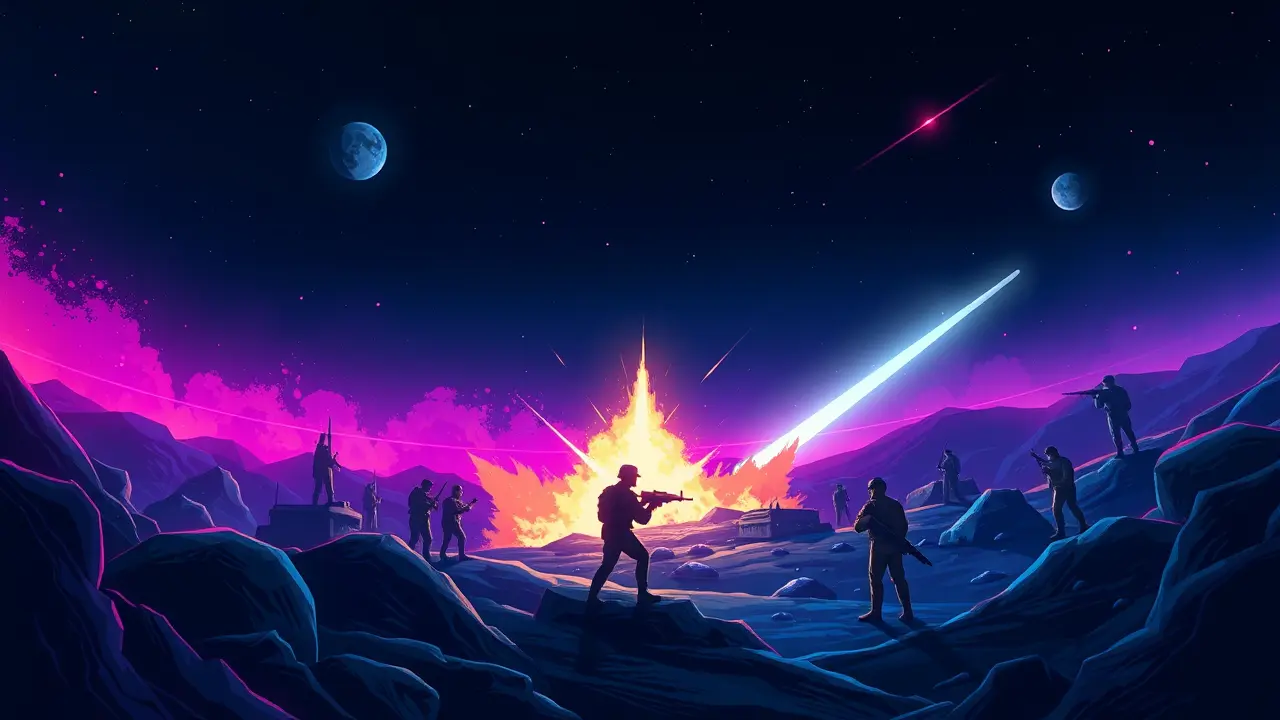
Politicsconflict & defenseMilitary Operations
Israel Threatens Escalated Strikes if Hezbollah Not Disarmed.
OL
Oliver Scott
23 hours ago7 min read
The recent statement from Israeli officials, threatening escalated military strikes against Hezbollah should the militant group not be disarmed, represents a critical inflection point in an already volatile regional calculus, arriving with chilling immediacy on the heels of Israel's confirmed targeted killing of four Hezbollah operatives—an action that has placed the fragile, often-violated ceasefire agreement under near-intolerable strain and pushed the specter of a full-scale, multi-front conflict closer to reality than at any point since the October 7th attacks. This is not merely a tit-for-tat escalation; it is a deliberate recalibration of Israel's strategic deterrence posture in the north, a high-stakes gambit designed to force a diplomatic outcome while simultaneously preparing the battlefield for a worst-case scenario that military planners in Tel Aviv and risk analysts in global capitals have long war-gamed.The core demand—the disarmament of Hezbollah in accordance with the long-ignored United Nations Security Council Resolution 1701 that ended the 2006 Lebanon War—has been a perennial non-starter for the Iran-backed 'state within a state,' which has amassed an arsenal estimated at over 150,000 rockets and missiles, many of them precision-guided, capable of striking deep into Israel's economic and population centers. The calculated elimination of the four members, likely high-value targets involved in cross-border rocket or anti-tank fire, serves a dual purpose: it is both a tactical response to immediate threats and a strategic message to Hezbollah's leadership in Beirut and its patrons in Tehran that Israel's tolerance for a simmering northern front has evaporated amidst its existential struggle in Gaza.The potential consequences of a miscalculation here are catastrophic, far exceeding the localized clashes of the past eight months. A full-scale war between the Israeli Defense Forces (IDF) and Hezbollah would be a conflict of a different magnitude altogether—a war between two highly disciplined, technologically advanced military entities, fought in the complex urban and mountainous terrain of southern Lebanon, likely drawing in direct Iranian involvement through its Revolutionary Guard Corps and triggering a regional conflagration that could engulf Syria, Iraq, and even Red Sea shipping lanes.From a risk-analysis perspective, we must model several plausible scenarios: Scenario A sees Hezbollah absorbing the provocation, leveraging international pressure to de-escalate temporarily, but maintaining its defensive posture, a outcome with a low probability given the group's need to maintain its 'resistance' credibility. Scenario B, with a moderate probability, involves a controlled but significant escalation—Hezbollah responding with heavier barrages targeting northern Israeli cities like Haifa, prompting limited but punishing Israeli airstrikes on Hezbollah's Beirut strongholds and infrastructure, a cycle of violence contained just below the threshold of all-out war but devastating for civilians on both sides of the border.Scenario C, the high-impact, low-probability nightmare, is the uncontained spiral: a massive Hezbollah missile salvo overwhelms Israel's Iron Dome and David's Sling systems, causing significant casualties and critical infrastructure damage, triggering a massive Israeli ground invasion into Lebanon aimed at decapitating Hezbollah's command structure and destroying its missile caches, which in turn prompts direct Iranian missile attacks on Israeli territory and potentially Israeli counter-strikes on Iranian nuclear facilities. The global economic ramifications of Scenario C are staggering, likely spiking oil prices beyond $150 a barrel, crashing regional markets, and creating a global supply chain crisis.The Biden administration, already navigating a delicate diplomatic tightrope, would face immense pressure to intervene militarily to protect its ally and prevent a wider war, potentially placing US forces in direct confrontation with Iranian proxies in Syria and Iraq. Meanwhile, the Lebanese government, a hollowed-out entity in the midst of a profound economic collapse, possesses zero capacity to rein in Hezbollah, making it a powerless bystander to its own destruction.The historical precedent of the 2006 war offers little comfort; Hezbollah is now a battle-hardened and vastly more powerful force, and Israel's political and military leadership is operating with a fundamentally different risk tolerance in a post-October 7th world. The threat of escalated strikes is therefore not an empty one; it is a clear statement of intent from an Israeli war cabinet that believes its long-term security necessitates the neutralization of the Hezbollah threat, by diplomacy if possible, but by overwhelming force if necessary. The coming days will be a critical test of back-channel communications, with Qatari, Egyptian, and American mediators working frantically to lower the temperature, but the fundamental equation remains unchanged: two heavily armed adversaries, each believing its very survival is at stake, are now staring into the abyss, and the margin for error has all but vanished.
#Israel
#Hezbollah
#Lebanon
#ceasefire
#disarmament
#strikes
#conflict
#featured
Stay Informed. Act Smarter.
Get weekly highlights, major headlines, and expert insights — then put your knowledge to work in our live prediction markets.
© 2025 Outpoll Service LTD. All rights reserved.